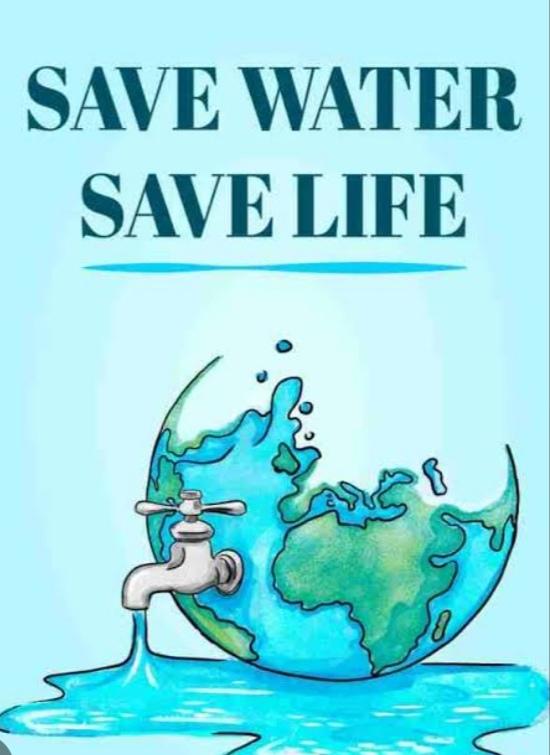Water is the essence of life, and conserving it is crucial for the survival of our planet. The alarming rate of water depletion and pollution has made it imperative to take immediate action to save this precious resource. In this article, we'll delve into the importance of saving water, the consequences of water scarcity, and simple ways to make a difference.
_Why Save Water?_
1. *Limited Resource*: Only 2.5% of the Earth's water is freshwater, and most of it is trapped in glaciers and polar ice caps.
2. *Increasing Demand*: The global population is projected to reach 9.7 billion by 2050, putting a strain on already scarce water resources.
3. *Climate Change*: Changes in precipitation patterns and rising temperatures exacerbate water scarcity.
4. *Ecosystems*: Water is essential for maintaining healthy ecosystems, supporting biodiversity, and regulating the climate.
5. *Human Health*: Access to clean water is crucial for human health, sanitation, and hygiene.
_Consequences of Water Scarcity_
1. *Food Insecurity*: Insufficient water for agriculture leads to crop failures and food shortages.
2. *Economic Losses*: Water scarcity affects industries, leading to economic losses and job insecurity.
3. *Social Unrest*: Competition for limited water resources can lead to social tensions and conflicts.
4. *Environmental Degradation*: Water pollution and depletion harm aquatic ecosystems and threaten species extinction.
_Simple Ways to Save Water_
1. *Fix Leaks*: Repair leaky faucets and toilets to avoid wasting up to 20 gallons of water per day.
2. *Take Shorter Showers*: Reduce your shower time to conserve up to 5 gallons of water per minute.
3. *Use Water-Efficient Appliances*: Install low-flow showerheads, toilets, and sinks to minimize water usage.
4. *Harvest Rainwater*: Collect rainwater for non-potable purposes, such as watering plants or washing cars.
5. *Raise Awareness*: Educate others about the importance of water conservation and involve your community in water-saving efforts.
_Conclusion_
Saving water is a collective responsibility

